Alstonia scholaris (R. BR.) |
| |
|
|
Botanical Name |
: |
Alstonia scholaris (R. BR.) |
English
Name |
: |
Devil’s Tree |
Synonym(s) |
: |
Echites scholaris(Linn.). , Alstonia cuneata |
Family |
: |
Apocynaceae |
| |
General Info
| Description |
 |
|
Evergreen tree which can reach a height of 80 feet and 2.4 m in girth. Bark is rough, grey-white, yellowish inside.The leaves are petioled, oblong, 15cm long, glossy, dark green on the upper surface, with a whitish undersurface, occurring in whorls of 4 or 6. The flowers are greenish white, tubular and sessile, occurring in dense terminal clusters and appearing in spring. The fruits are long cylindrical follicles. |
| Herb Effects |
 |
|
Laxative (bark decoction); anticancer and hypotensive (stem bark); anthelmintic (bark); hypothermic and aphrodisiac (prolongs erection in males); astringent and galactogogue, antibacterial activity (Khan et al., 2003). |
Chemistry
| Active Ingredients |
 |
|
Lupeol, amyrin acetates and numerous alkaloids (including ditamine and ditain) (bark); indole alkaloids (plant); betulin, ursolic acid and beta-sitosterol (leaf); betulinic acid (stem bark). |
| Chemistry
of Active Ingredients |
 |
|
|
 |
Name |
CAS# |
IUPAC Name |
Formula |
Structure |
 |
|
| Lupeol |
Not Available |
Not Available |
C30H50O |
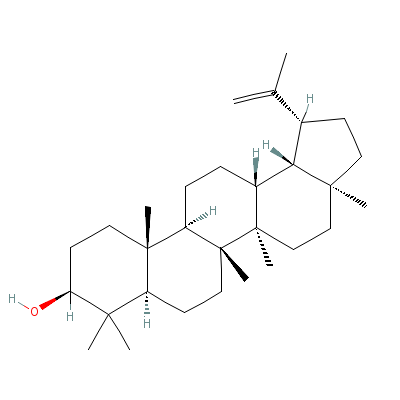
|
| Betulin |
Not Available |
Not Available |
C30H50O2 |
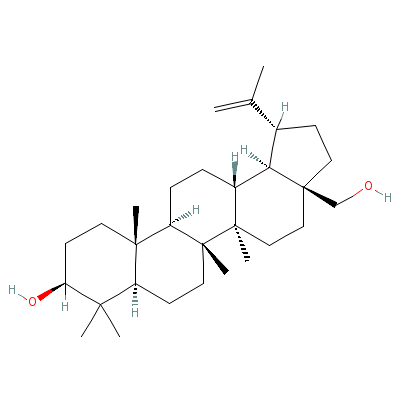
|
| Ursolic acid |
77-52-1 |
10-hydroxy-1,2,6a,6b
,9,9,12a-heptamethyl
-2,3,4,5,6,6a,7,8,8a
,10,11,12, |
C30H48O3 |
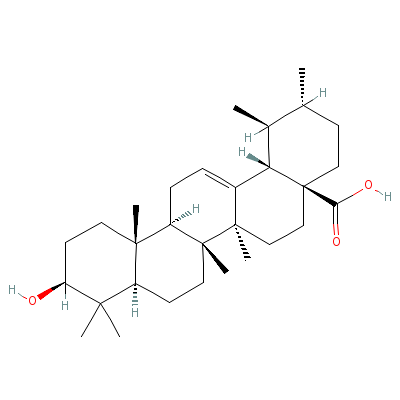
|
| Beta-sitosterol |
5779-62-4 |
17-(5-ethyl-6-methyl
-heptan-2-yl)-10,13-
dimethyl-2,3,4,7,8,9
,11,12,14, |
C29H50O |
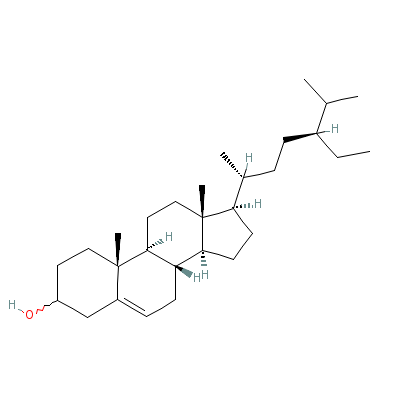
|
| Betulinic Acid |
4481-62-3 |
Not Available |
C30H46O3 |
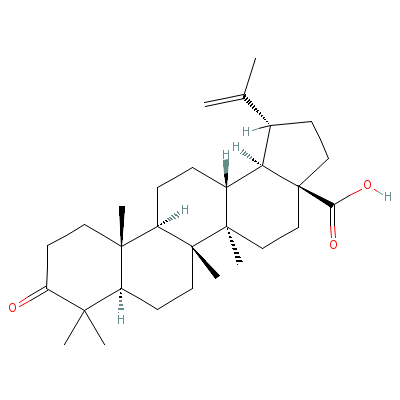
|
|
Pharmacology
| Medicinal Use |
 |
|
In tuberculosis and as a tonic and laxative (bark decoction); in skin disorders, in dysentery, chronic diarrhea and fever, in heart diseases, asthma and to stop bleeding of wounds; for deafness (bark); in leprosy and dyspepsia (fresh bark juice); for beri-beri and liver congestion (decoction of young leaf); to ulcers, sores, tumours and in rheumatic pain, and is used for curing toothache, an antidote for Antiaris- poisoning (the milky juice or latex). |
| Reference |
 |
|
 Chandel et al., Biodiversity in Medicinal and Aromatic Plants in India. Chandel et al., Biodiversity in Medicinal and Aromatic Plants in India.
Grieve M. A Modern Herbal 1931.
Khan MR, Omoloso AD, Kihara M. 2003, Fitoterapia;74(7-8):736-40.
Sharma, Classical Uses of Medicinal Plants.
Uniyal et al., Medicinal Flora of Garhwal Himalayas. |
Dealers
Products
|
|
|
|
|